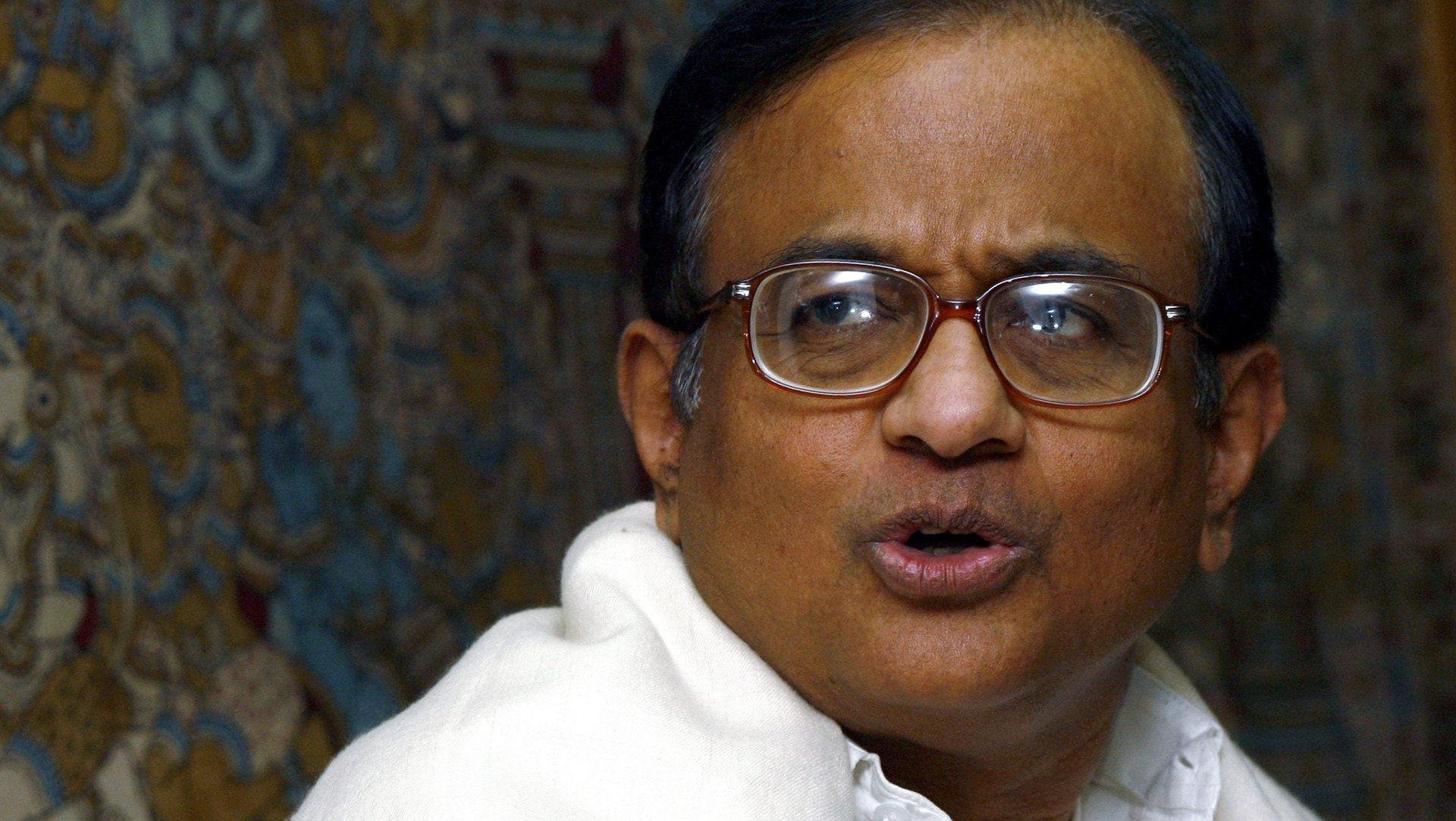India’s former finance minister P Chidambaram arrested
Former Indian finance minister P Chidambaram was today (Aug. 21) arrested in connection with a corruption and money laundering case.


Former Indian finance minister P Chidambaram was today (Aug. 21) arrested in connection with a corruption and money laundering case.
The case involves alleged irregularities in the foreign investment promotion board’s (FIPB) nod for the media venture INX Media to receive overseas funds worth Rs305 crore ($42.8 million) in 2007, when Chidambaram was finance minister.
The Central Bureau of Investigation (CBI) arrested Chidambaram from his residence in New Delhi after he made a dramatic appearance at the All India Congress Committee (AICC) headquarters in the capital at 8.15 pm local time, around 24 hours after he went incommunicado following the rejection of his anticipatory bail by the Delhi high court.
Minutes after his appearance, teams from both the CBI and the Enforcement Directorate (ED) arrived at his residence. In the ensuing drama, CBI officials even scaled the wall of Chidambaram’s house to gain access.
Earlier in the day, Chidambaram had moved the supreme court seeking anticipatory bail, but the top court denied him any immediate immunity from arrest.
“The petitioner is a law-abiding citizen and has a reputation to sustain in society. He is a sitting member of the Rajya Sabha. The antecedents of the petitioner are impeccable. He has never been an accused of any offence. There is no possibility of his fleeing from justice,” read the petition by Chidambaram’s lawyers, according to a news channel, NDTV.
However, the CBI, which is probing the case, wouldn’t relent. “It is a money laundering case of monumental magnitude,” it told the court, which then forwarded the opposition Indian National Congress (INC) leader’s petition to the chief justice of India Ranjan Gogoi.
Last night (Aug. 20), CBI sleuths had arrived at Chidambaram’s Jor Bagh residence and left a notice, asking him to present himself at the agency’s office within two hours of seeing it.
Chidambaram is a prominent voice of the opposition Congress party, in economic and political matters, both within and outside parliament.
How the case unfolded
In 2017, the ED, an agency that probes economic offences, while investigating a company associated with Chidambaram’s son, Karti Chidambaram, found documents related to the INX Media deal in his computer.
The documents allegedly indicated that payments were made to Karti’s company by the Mumbai-based INX Media (now called 9X Media) at the time it was granted FIPB approval.
ED sent a reference in this regard to CBI, which registered a case of corruption in May 2017, and searched the premises connected to both Karti and his father P Chidambaram.
A case was registered by the CBI in May 2017, alleging that Karti Chidambaram used his father’s influence for the approval granted to INX Media to receive foreign investment from three Mauritius-based firms.
The CBI had accused Chidambaram, Karti, INX Media, and unknown officials of the finance ministry for irregularities found in the deal.
Following this, ED lodged a money-laundering case against Karti.
In May 2018, Chidambaram moved the Delhi high Court seeking an anticipatory bail plea in the corruption case lodged by the CBI, and in July approached the court for protection in the money laundering case pursued by the ED. The high court granted him interim protection from arrest in both cases.
In January 2019, the court reserved its judgment on the anticipatory bails in both cases and yesterday, dismissed the pleas.
“This is a totally politically motivated witchhunt,” Karti Chidambaram said in a statement after his father’s arrest.
Meanwhile, the Congress alleged that the Narendra Modi government was indulging in political vendetta against Chidambaram. Party leaders, including Rahul Gandhi and Priyanka Gandhi Vadra, had taken to Twitter earlier in the day to show their support for their party colleague.
It may be recalled that Chidambaram was India’s home minister under the Congress-led government when current home minister Amit Shah was arrested in an alleged fake encounter case in Gujarat in 2010.
The CBI had then alleged that Amit Shah, as home minister in the western state of Gujarat, had ordered the extra-judicial killings of gangster Sohrabuddin Sheikh and his wife, and later their friend who was a witness to Sheikh’s killing in 2005. However, in 2014, the court cleared him of these charges citing the absence of evidence.